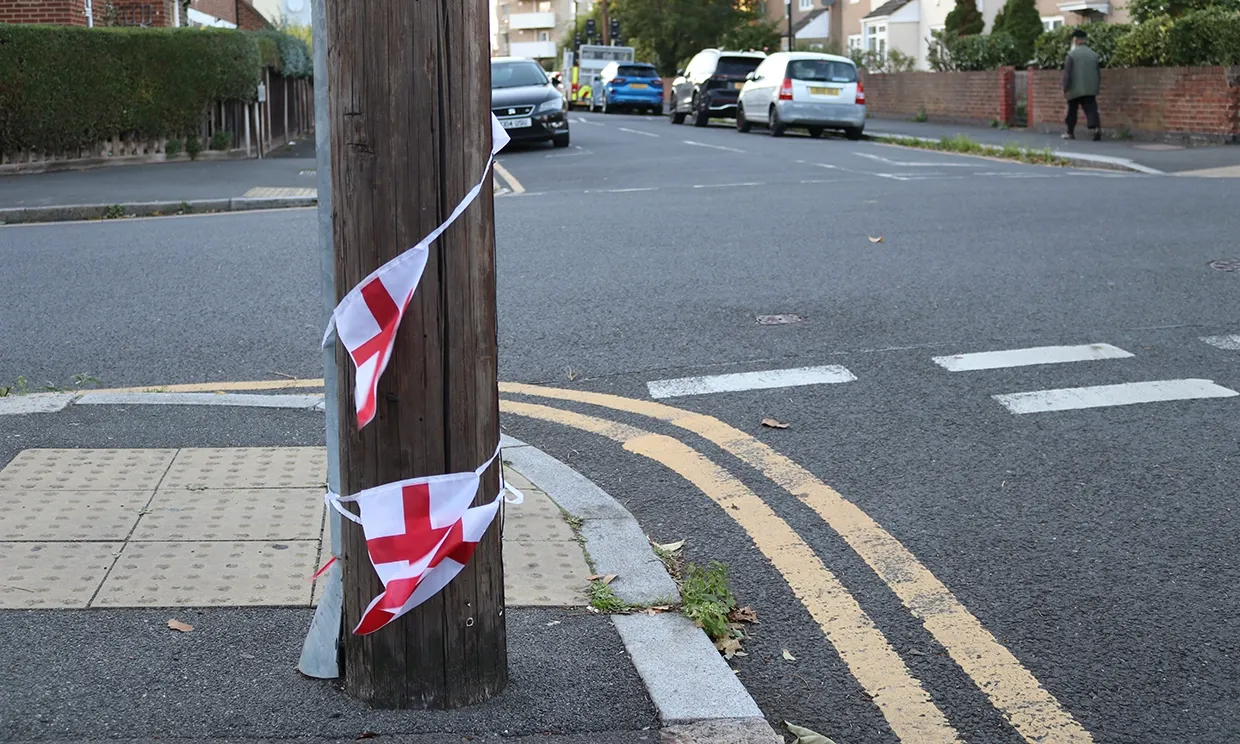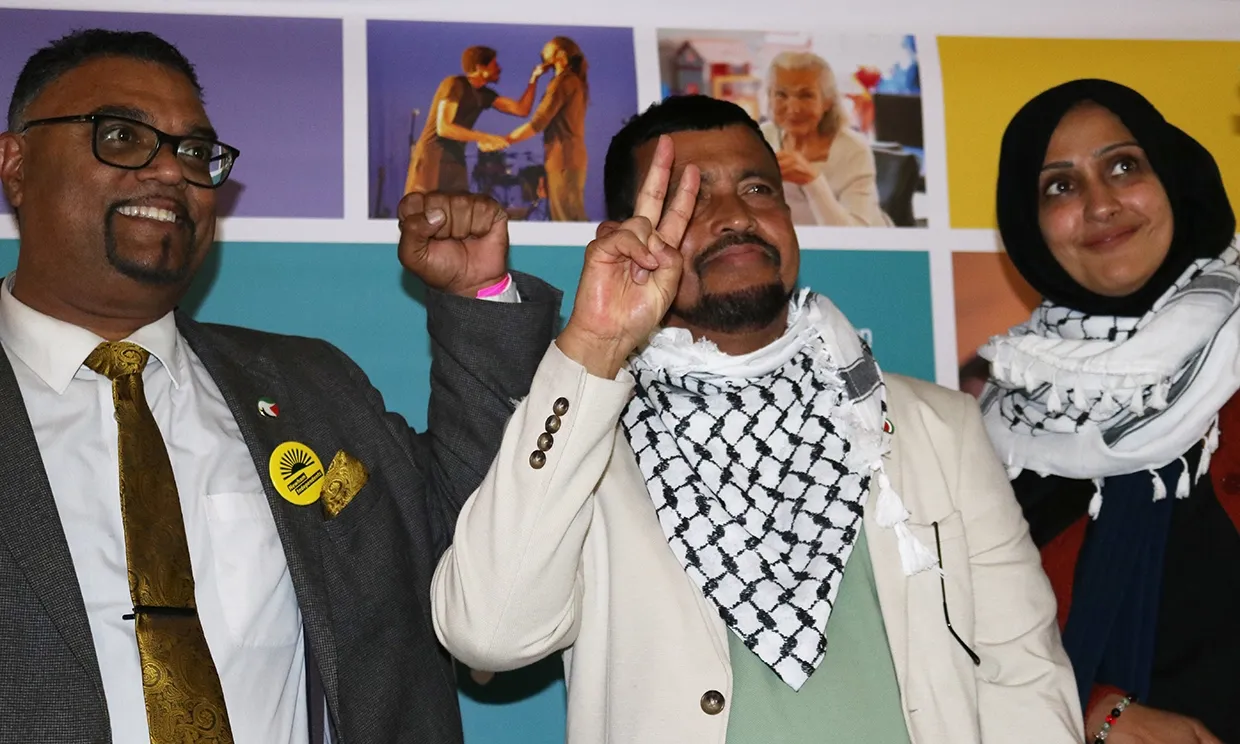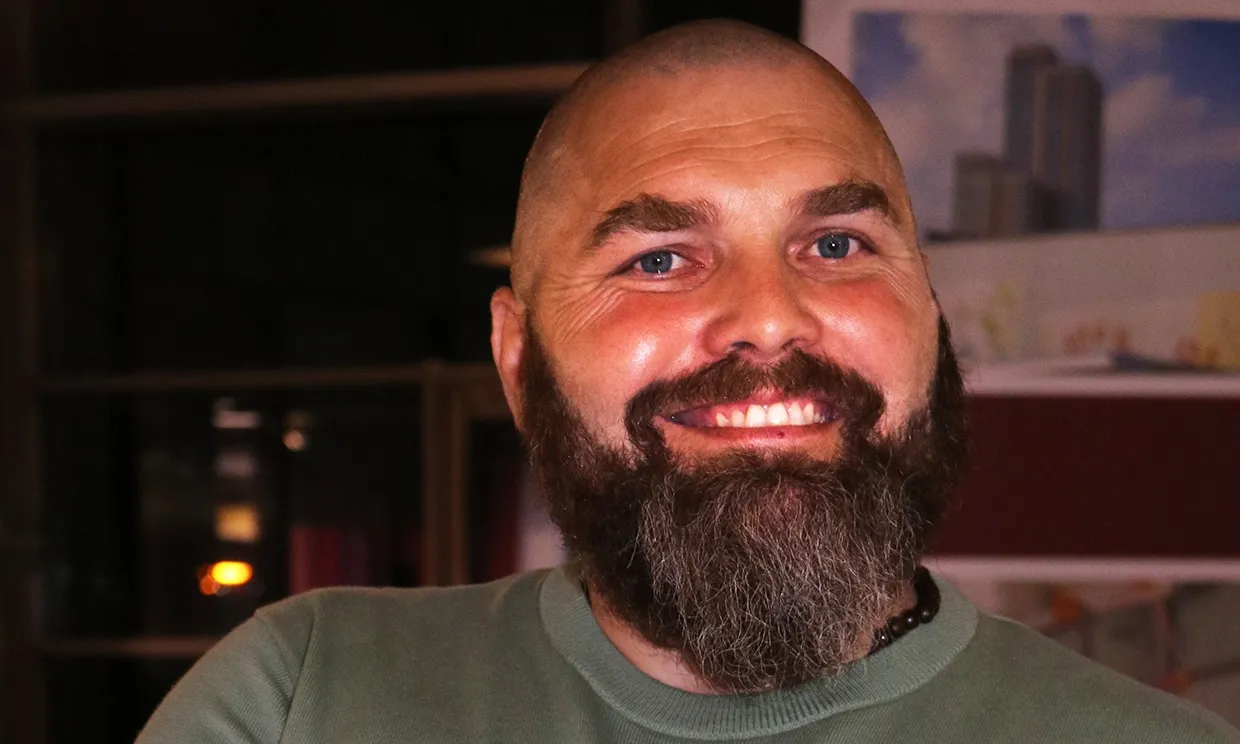In a traditional Labour heartland, where bins are left overflowing and broken signs line the streets, residents took to the polls to call for change.
On Thursday 18 September, the citizens of Plaistow South ward decided to vote in a councillor from the Newham Independents party.
Wandering the streets in the week of the election, this looked like a one-party race. The yellow and white posters of the Independents were sprinkled about, but there was scant sign of other partisan life. Unless you count the numerous flags of St George affixed to poles and street lamps.

The impression was not that voters abandoned the established parties, but rather that those parties that vacated the scene, including that which holds the lion’s share of council seats.
Leader of the Newham Independents Cllr Mehmood Mirza told the Citizen: “No one believed us in 2023. They said in a Labour stronghold like Newham we didn’t have a chance and votes would be wasted. We did it and now some say it's a one off.”

A former Labour party member, Cllr Mirza said he hopes independent parties can offer the socialist values he feels are no longer represented in mainstream parties.
He said: “The Labour party is dominant in London but it is facing serious problems. A lot of independents like me have left the Labour party because it doesn’t represent the working class.
“We all need to work together, to start representing our communities and fixing the problems our constituents face on their doorsteps.
“I see hope for Newham, and I think we have good chances coming into the 2026 elections.”
In Plaistow South, Newham Independent Nazrul Islam won the September poll with 44.3 per cent of the vote, more than twice the 21.2 per cent won by Labour’s candidate Asheem Singh. This is a huge drop from the 56.0 per cent majority won in 2022 by Labour party councillor Neil Wilson, whose death prompted the election to be called.
Reform UK candidate Lazar Monu placed a strong third with 16.0 per cent, with the others trailing behind: Green party candidate Nic Motte was on 7.4 per cent, Conservative Rois Miah followed with 6.0 per cent and Liberal Democrat Sheree Miller won 4.4 per cent of the votes.
This result echoes Labour’s loss of Plaistow North in 2023 to Newham Independent Sophia Naqvi by a similar margin. Her victory followed hot on the heels of a by-election win in Plashet ward several months previously by Mehmood Mirza, who joined Naqvi to form the Newham Independents alongside fellow Plashet councillor Zuber Gulamussen, elected in 2022 under the Labour banner.
In contrast to the left-wing origins of the party’s first three councillors, newly-elected Md Nazrul Islam stood as a Conservative party candidate in Boleyn ward in 2022. Now that they hold four out of 66 seats on the council, the Newham Independents are the largest opposition party.
Mirza explained the result in terms of declines in basic services: “People are fed up with tax rises, filthy streets, crime. People have not seen any changes.” He said that the aim of his group was to “provide [people] with an alternative in Newham” with policy objectives such as freezing council tax, introducing free school meals for secondary students and lowering the salary of the Town Hall’s chief executive.
Plaistow and surrounding parts came to prominence as a key player in the rise of workers rights. Since party founder Keir Hardie was elected to represent West Ham South in 1892, the area has been a bastion of Labour support. But more recently it is one of the many parts of the UK that are slipping beyond the control of the people in Downing Street.

By-election results up and down the land have beaten a steady drum roll of Labour defeat, punctuated only rarely by a save. Aversion to the traditional centre-left organisation has different causes in different places.
Their 2024 general election victory was marred by lower-than-expected vote share in many constituencies with large Muslim populations in reaction to the party’s then policy on the war in Gaza. This included Newham, where there was a swing against Labour of over 25 percent in each pf the three seats.
Since that time, lapses of basic competence have riled voters in many places while specific policy failures have turned people against them elsewhere.
The beneficiaries of Labour decline have been the Greens and Liberal Democrats in most of London. In Plaistow South, by contrast, discontent is such that voters have sought political newcomers rather than political outfits of longer standing.
It is noteworthy that concerns about local services appear to have motivated a substantial number of people to opt for Reform UK, whose vote rose from 3.5 per cent in last year’s General Election in East Ham to nearly one in six votes this time round.
Speaking with the Citizen, the party’s candidate Lazar Monu mentioned “uncontrolled immigration” as an issue, but he also recounted hearing on the doorstep about “fly-tipping, rubbish is not being collected on time, the crime rate going through the roof.”
The big question is what awaits us at the May local elections. Will Newham see the sort of dramatic Labour crash that we saw in Scotland in 2015 when the party lost 40 of their 41 seats? Or will they rally and reconnect with the electorate?









